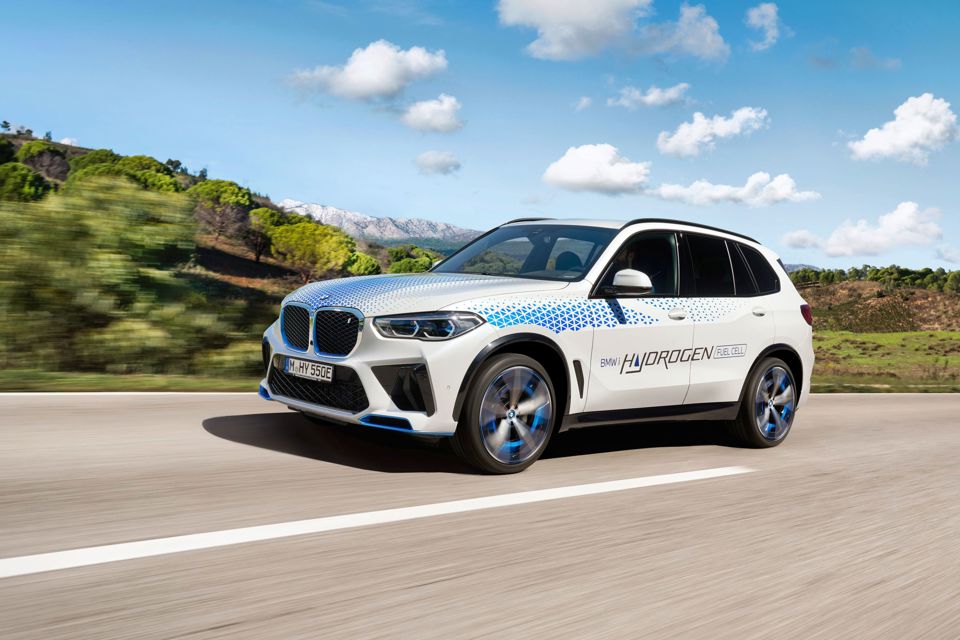BMW is starting production of hydrogen powertrains at its Munich plant as part of an alternative fuel vehicle (AFV) strategy which includes mass-production in future.
The premium German car maker has revealed that it is initially building a small fleet of iX5 Hydrogen SUVs to be used for global testing and demonstration purposes, following tests of the X5-based i Hydrogen Next prototype.
Oliver Zipse, chairman of the Board of Management of BMW AG, said: “As a versatile energy source, hydrogen has a key role to play on the road to climate neutrality. And it will also gain substantially in importance as far as personal mobility is concerned.
BMW is starting production of hydrogen powertrains at its Munich plant as part of an alternative fuel vehicle (AFV) strategy which includes mass-production in future.
The premium German car maker has revealed that it is initially building a small fleet of iX5 Hydrogen SUVs to be used for global testing and demonstration purposes, following tests of the X5-based i Hydrogen Next prototype.
Oliver Zipse, chairman of the Board of Management of BMW AG, said: “As a versatile energy source, hydrogen has a key role to play on the road to climate neutrality. And it will also gain substantially in importance as far as personal mobility is concerned.
“We think hydrogen-powered vehicles are ideally placed technologically to fit alongside battery-electric vehicles and complete the electric mobility picture.”
Zipse added: “By commencing small-scale production of fuel cells today, we are demonstrating the technical maturity of this type of drive system and underscoring its potential for the future.”
So far, OEMs attempts to sell hydrogen-powered cars in the UK have stalled, with many industry analysts highlighting its suitability for LCVs and HGVs, rather than personal mobility.
In the first half of 2022 Toyota’s Mirai has generated just two registrations, according to Society of Motor Manufacturers and Traders data, compared to six in the first half of last year.
The result is a far-cry from Toyota's hopes for the AFV when it launched in 2020.
BMW Group sources the individual fuel cells required for manufacturing the BMW iX5 Hydrogen from the Toyota Motor Corporation. The two companies have been collaborating on fuel cell drive systems since 2013.
The BMW iX5 Hydrogen’s fuel cell-powered drivetrain develops a continuous output of 125kW, employing an electric motor featuring fifth-generation BMW eDrive technology and a high-performance battery purpose developed for the vehicle.
Its total power output is 374PS.
Login to continue reading
Or register with AM-online to keep up to date with the latest UK automotive retail industry news and insight.















Login to comment
Comments
No comments have been made yet.